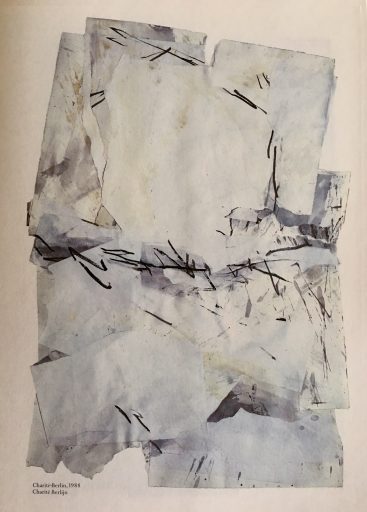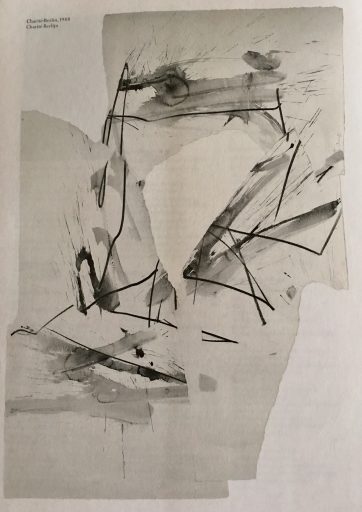Today I came across an old catalogue from 1989 entitled “Amsterdam, Berlin/GDR, Madrid, Berlin (West)”. It was published by the Karl Hofer company. All the artwork inside is from 1988 or the first half of 1989. From a time when it seemed impossible to us that East and West would ever be one.
In between stood THE WALL. The mighty, seemingly insurmountable symbol of the divide. A border defended in the most brutal way, by force of arms, automatic gun emplacements, minefields and soldiers. Among the artists published there: the young Winfried Muthesius.
An artist whose works, though reserved, are always politically outspoken in their subtext.
He exhibits, amongst other works, two of his cityscapes from the Charité Berlin. Yet these are different from everything he has done before.

Already the title stands out. Unlike his usual titles, it does not begin with the city, then the specific location he focuses on. This one is the other way around. “Charité – Berlin, 1988”. He rotates the perspective; expands it. This gives us a better view from the West into the East, through the Wall.
His complex artistic working process on this series of pictures also has symbolic meaning. He paints, tears up the paper, glues it together, tears it up once more, sticks it back together again, until his work has caught the genius loci which he captures instinctively; a look forward to that which, historically, was yet to occur. Muthesius managed to express what was in the air and in himself. Certainly more than a desire; the absolute need for a change of circumstances.

The pictures bear the name of the physical location; but all that can be seen is the essential fragmentary quality, the essence of that which makes up the location, shaped by history and human experience, and also that of the artist. He condenses this in his work in a striking manner, dissolves the material world, so that that which is hidden beneath or already beginning to simmer can break through the surface. A subtle plea reaches through to the viewer; an appeal for change, a questioning of the status quo, an openness to new perceptions.
